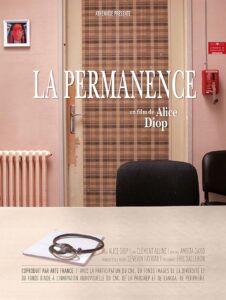This post, published in 2024-2025, is part of our Research Initiation Scheme for 2023-2024.
The conference “French Studies and the Medical Humanities: Critical Intersectionalities” took place at the University of London’s Institute of Languages, Cultures, and Societies on the 3rd and 4th of September, 2024. I was fortunate to be able to attend with the support of a Modern Languages MRes Travel Bursary from the Modern Languages Core Disciplinary Research Group.
As part of a strategic effort to de-centre anglophone perspectives and broaden the linguistic horizons of the field, the conference sought to highlight the importance of linguistic and cultural sensitivity in ongoing conversations about medical experiences. Paper topics included critical disability studies, environmental anxiety, bibliotherapy, and narrative medicine.
In her paper titled “L’affaire Anne Bert: Assisted dying between law and literature”, keynote speaker Anna Elsner (University of St Gallen) discussed how individual narratives are co-opted by politicians and governments to shape the lawmaking process. She highlighted the example of Anne Bert, a former court-appointed legal guardian who became a writer later in life. After being diagnosed with ALS (amyotrophic lateral sclerosis) in 2015, she publicly campaigned for changes in France’s legislation surrounding assisted dying, before travelling to Belgium to seek an assisted death in 2017. This decision was subject to widespread debate in the French media and parliament. Elsner’s paper encouraged attendees to de-centre their own perspectives and allow both the medical humanities and French studies to enrich each other through their mutual engagement.

Of particular interest to my own project was a panel titled “Disability and Clinical Environments”. In her paper on disability in the works of Samuel Beckett, Molly Crozier (University of St Andrews) discussed the networks of care that exist outside of traditional medical settings and the intimacy involved in caring relationships, especially in light of the capacity of interpersonal relationships to cause more harm than good. Áine Larkin (Maynooth University) then analysed how the documentary La Permanence by Alice Diop centres the patient and their subjectivity in its depiction of the clinical encounter, and how it positions vulnérabilité (vulnerability) alongside the French values of liberté, égalité, fraternité (freedom, equality, fraternity). These papers helped me think about the caring relationships depicted in my own corpus texts, and pointed to useful sources that helped me shape the conclusion of my MRes dissertation.
Continue reading